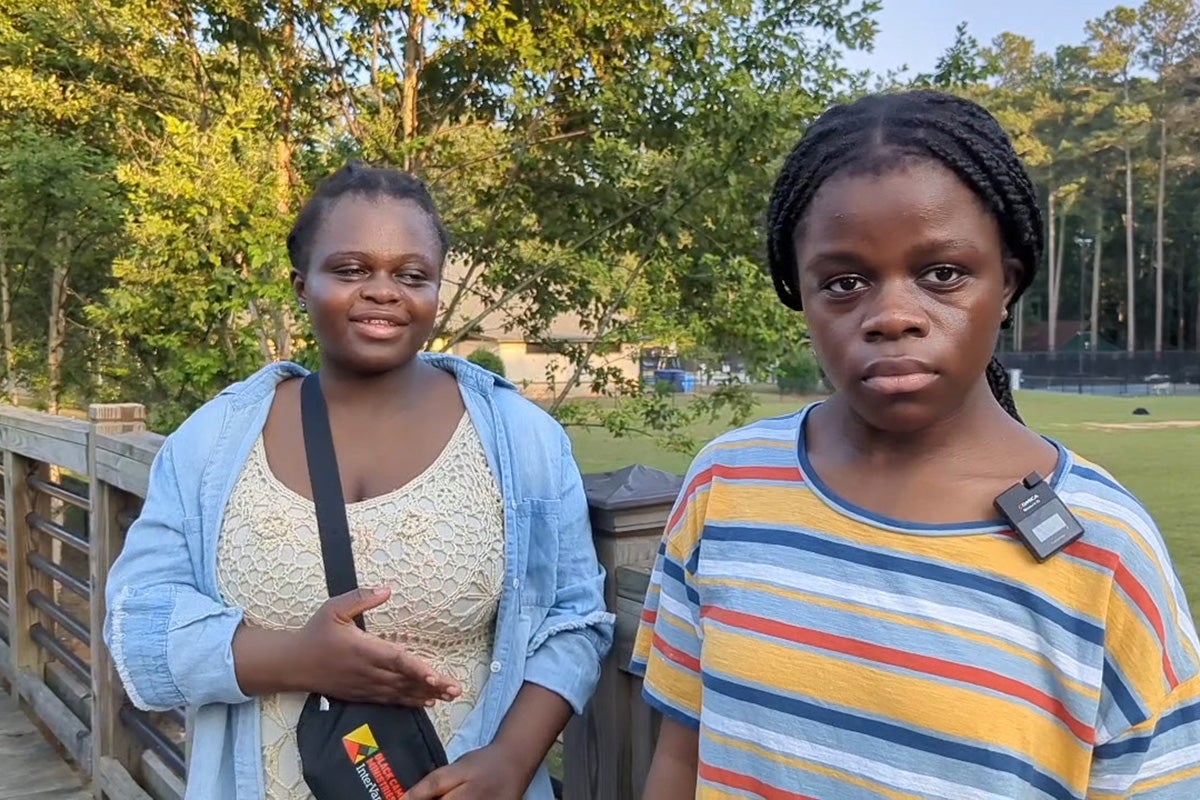
Ideas
Filling a gap in mental health care for Minnesota’s migrant workers
This article first appeared on MinnPost and is republished here under a Creative Commons license.
Growing up in southern Texas as a third-generation Mexican American, Gilberto Perez Jr. was familiar with some of the challenges immigrants face.
That fueled his efforts as a social worker in Indiana, where he’s worked with community mental health centers to fill the gap in services for people who need mental health help. In the early 2000s, through a community health assessment, he found that many people (86 percent of the respondents) felt lethargic and depressed several times a week. It also became clear that people didn’t know where to find help.
“The conversations in the community were stimulating and stirring within the folks of saying, ‘Oh, I think I might need some help. Where do I get it?’” he said.
In 2007, he created the “Bienvenido” curriculum and program, initially designed around that original health assessment. Perez Jr. said the state recognized that the program—“bienvenido” means “welcome” in Spanish—encouraged people to seek help at health centers.
His program first received a contract to train others across Indiana. Then in 2008, the National Network to Eliminate Behavioral Health Disparities (NNED) and the National Latino Behavioral Health Association nominated the program as one of 16 “community-defined evidence projects”—efforts that use cultural and or community guides to improve the availability, quality, and outcomes of behavioral health care.
Following that, the Substance Abuse and Mental Administration Services and the NNED worked together to train 20 people in leading the program from 10 states, Perez Jr. said.
Since the program started, Perez Jr. said around 450 people have gone through the training and now can facilitate the program in their communities. Minnesota is also a part of the effort.
Some people in Minnesota have already been trained through a grant from the U.S. Department of Agriculture to the University of Nebraska-Omaha designed to train leaders in Midwestern states, specifically those with migrant farm workers.
Each state has unique needs among its migrant workers and the program gives facilitators flexibility to make it their own based on a community’s needs, Perez Jr. said.
“We’re offering opportunities for ventilation for sharing stories about migration, and then offering education on things related to anger management, family dynamics, mental health, their strengths and their weaknesses,” he said.
The program makes space for people to talk about their migration experience and adjustment to a new life. It also allows for people to build relationships with each other and become more involved in their local communities, which helps spur a sense of belonging, Perez Jr. said.
Minnesota’s iteration of Bienvenido is meant to reach migrant Latino workers who are in high stress jobs with minimal support structures in place.
There has been one full installment of the program. Around 15-20 people attended, said Silvia Alvarez de Davila, a University of Minnesota Extension professor in the Department of Family, Health and Wellbeing. Each installment is around nine sessions and makes space for participants to build connections with the community and learn skills to help manage stress, among other emotions.
Temporary agricultural workers
Alvarez de Davila said participants are usually workers in agricultural settings, such as meat processing and packing plants. Many of the participants have come to Minnesota through the H-2B visa program, which allows companies to temporarily hire foreign workers.
In 2023, 245 of the state’s 388 H-2B workers in production operations (specifically under manufacturing) were employed by meat-processing company HyLife, which is located in Windom, according to U.S. Department of Labor data.
Some of the participants, however, are undocumented—reluctant to seek care while staying under the radar from federal programs out of fear, Alvarez de Davila said.
With the help of facilitators in those communities who are familiar with Latino customs and culture, organizations like University of Minnesota Extension are able to connect with those workers who might otherwise not trust such programs.
“We know that mental health is one of the main issues for immigrant families, particularly for those that are uninsured and undocumented,” Alvarez de Davila said. “The idea is to support them with resources and activities for them to stay well when they are away from their families, while they are working hard.”
She added: “They do have these harsh jobs, and also schedules, so they don’t connect with the community. They don’t have time for recreation.”
Those types of situations can bring out intense emotions that can be challenging, especially for people who don’t have support systems in place, said Aubree Derksen, who works with University of Minnesota Extension and is a trained facilitator for the program.
“In preschool or in a classroom you’re labeling body parts and emotions, but then we get to grownups and we forget that. And there’s some cultural stigma associated with mental health in the Latinx community,” Derksen said. “Just being able to say, ‘Man, I’m angry. Now, what do I do with that, and how do I do that in a way that’s healthy?’”
Not an easy sell
Alvarez de Davila said that many migrant workers don’t talk about their emotions because they don’t have safe spaces to do so. They also tend to not have medical insurance, so there isn’t a formal way for them to talk about their mental health—and their supervisors and employers generally don’t offer insurance, either, she said.
The first round of the program took place in Worthington, a city of about 14,000 residents in southwestern Minnesota. Many of the participants were employees of the JBS pork processing plant, and Alvarez de Davila said that everyone who started in the program stayed with it.
“They are in a really hard environment,” she said. “It’s really hard for them because they are tired at the end of the day. But they really wanted to come.”
It’s not an easy sell. Alvarez de Davila has noticed that it takes time for people to feel comfortable talking about their feelings and the difficulties they have faced.
“There was one lady that actually the very first day she was very pessimistic and she didn’t participate at all. She didn’t want to talk,” Alvarez de Davila said. “But at the end, she said after this class that she was able to share and to open up her feelings and talk about what she feels and how she now has some ways to share her emotions.”
While the program isn’t focused on the migration experience, Alvarez de Davila said it certainly comes up for many participants. “Most of them share about how they feel being different, or how they ended up here,” she said. “It’s a safe space where they share stories. When you share, you probably feel like you are not alone.”
Others sometimes share the stress of sending money to their families back home.
“Most of them, if not all of them—that’s the reason for why they are here,” Alvarez de Davila said. “That’s why you see families that are separated. That’s the main motivator, to send money back because of the lack of opportunities.”
She said that, so far, one of the challenges facilitators have faced is convincing employers to work with them on such a program. That’s why it’s important for facilitators to have connections with their communities and the migrant workers.
“Employers don’t like it because they think that these workers are going to complain, are going to talk about the harsh environment they work (in),” she said. “When we are trying to offer the program it is difficult. Then we needed to kind of explain … the benefit because, in the end, the employers win because they have their workforce in good shape working and not being absent or getting sick.”
Because of the difficulties convincing employers, it’s important for facilitators to have connections with their communities and the migrant workers. Derksen is located in the University of Minnesota Extension’s Rochester office and is learning how nearby communities could benefit from Bienvenido.
Perez Jr. said the program has helped to open gates to more mental health services for communities in many states besides Indiana and Minnesota, including New Mexico, Oregon, Kansas, Illinois, Michigan, Pennsylvania and New Hampshire.
“They’re able to have immigrants who are better informed about where the resources are at, they know how to access services, and when they need help, they know where to go,” Perez Jr. said.
Expanding the program
University of Minnesota Extension, one of two organizations that run Bienvenido programs in the state, is in conversation with companies in both Waseca and Owatonna about the program coming to their employees.
One of the Waseca companies employs workers from Guatemala who come for six months and then return together. The next group of workers for the Waseca company will be arriving in April, she said.
Derksen said the program could potentially be rolled out among farm workers. She’s talked with people at the Minnesota Farmers Union and the Minnesota Farm Bureau and said their initial reactions to the idea seemed promising.
Image: Matthias Mitterlehner / Unsplash


